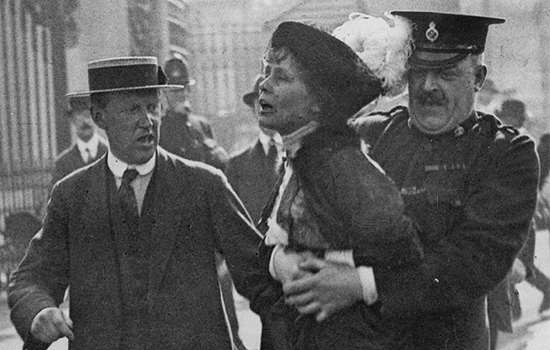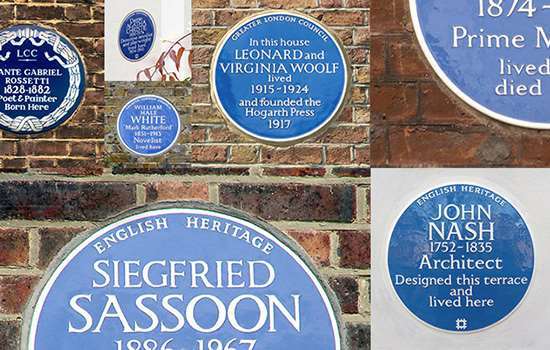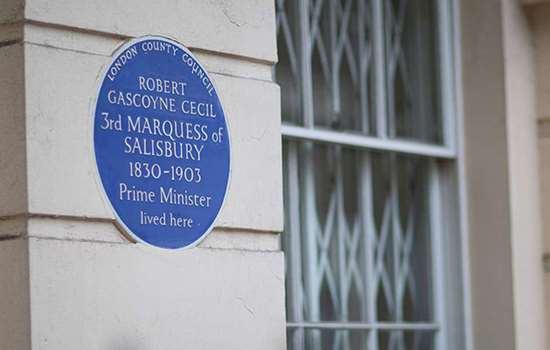WILDE, Oscar (1854-1900)
Plaque erected in 1954 by London County Council at 34 Tite Street, Chelsea, London, SW3 4JA, Royal Borough of Kensington and Chelsea
All images © English Heritage
Profession
Dramatist, Poet
Category
Literature, Theatre and Film
Inscription
OSCAR WILDE 1854-1900 wit and dramatist lived here
Material
Ceramic
Oscar Wilde reached the height of his fame while living at 34 Tite Street in Chelsea. It was here that he wrote The Picture of Dorian Gray and The Importance of Being Earnest and it was this house he left to serve his jail term for ‘gross indecency’ in 1895.
AESTHETE
Wilde cultivated his pose of ‘aesthete’ at Oxford University in 1874–9, gaining a reputation as a conversationalist and wit. In 1879 he moved to London, where he settled down to writing in earnest and met Constance Lloyd (1858–98), the daughter of a successful Irish barrister. The couple married in May 1884, and arranged to lease 16 (now 34) Tite Street, a newly built house in the heart of Chelsea’s fashionable artists’ quarter.
‘A RESTING-PLACE OF PURE COLOUR’
The Wildes took up residence in January 1885, after ‘original and, as some visitors considered, bizarre’ decorative work had been carried out by EW Godwin, a leading figure in the Aesthetic Movement.
The front door, entrance hall, staircase and dining room were predominantly painted white – ‘My eye requires in a room a resting-place of pure colour’, Wilde wrote – while the drawing room had a ceiling by Godwin and Whistler. Here, the Wildes entertained such well-known figures as Sarah Bernhardt, Ellen Terry, Henry Irving and DG Rossetti. The Wildes also had the company of Oscar’s mother, Lady Wilde, who moved to nearby Oakley Street two years after her son settled at number 34.
WRITING SUCCESS
During his ten years in the house, Wilde enjoyed his greatest fame and success; his book of fairy stories, The Happy Prince and Other Tales (1888), was followed by a spectacular first novel, The Picture of Dorian Gray (1891), and a series of plays that included Lady Windermere’s Fan (1892), A Woman of No Importance (1893), An Ideal Husband (1895) and The Importance of Being Earnest (1895).
Wilde wrote mainly in the library – at ground-floor level, facing on to the street – but he also worked in the exotic smoking room at the rear of the first floor, while his bedroom was on the storey above, also to the rear.
TRIAL AND IMPRISONMENT
It was at Tite Street that the 8th Marquess of Queensberry – incensed by Wilde’s association with his son Lord Alfred ‘Bosie’ Douglas – made his unannounced appearance in 1894. After a row, he was thrown out, and Oscar sued him for libel. The action, which reached the courts in spring 1895, failed, and resulted in Oscar’s prosecution and committal to prison for two years for homosexual practices.
At the insistence of Wilde’s creditors, the entire contents of his Tite Street home were sold. William Rothenstein described how the house ‘was filled with a jostling crowd, most of whom had come out of curiosity’. In 1897, on his release from Reading Gaol, Wilde moved to the Continent, where he died a broken man.


